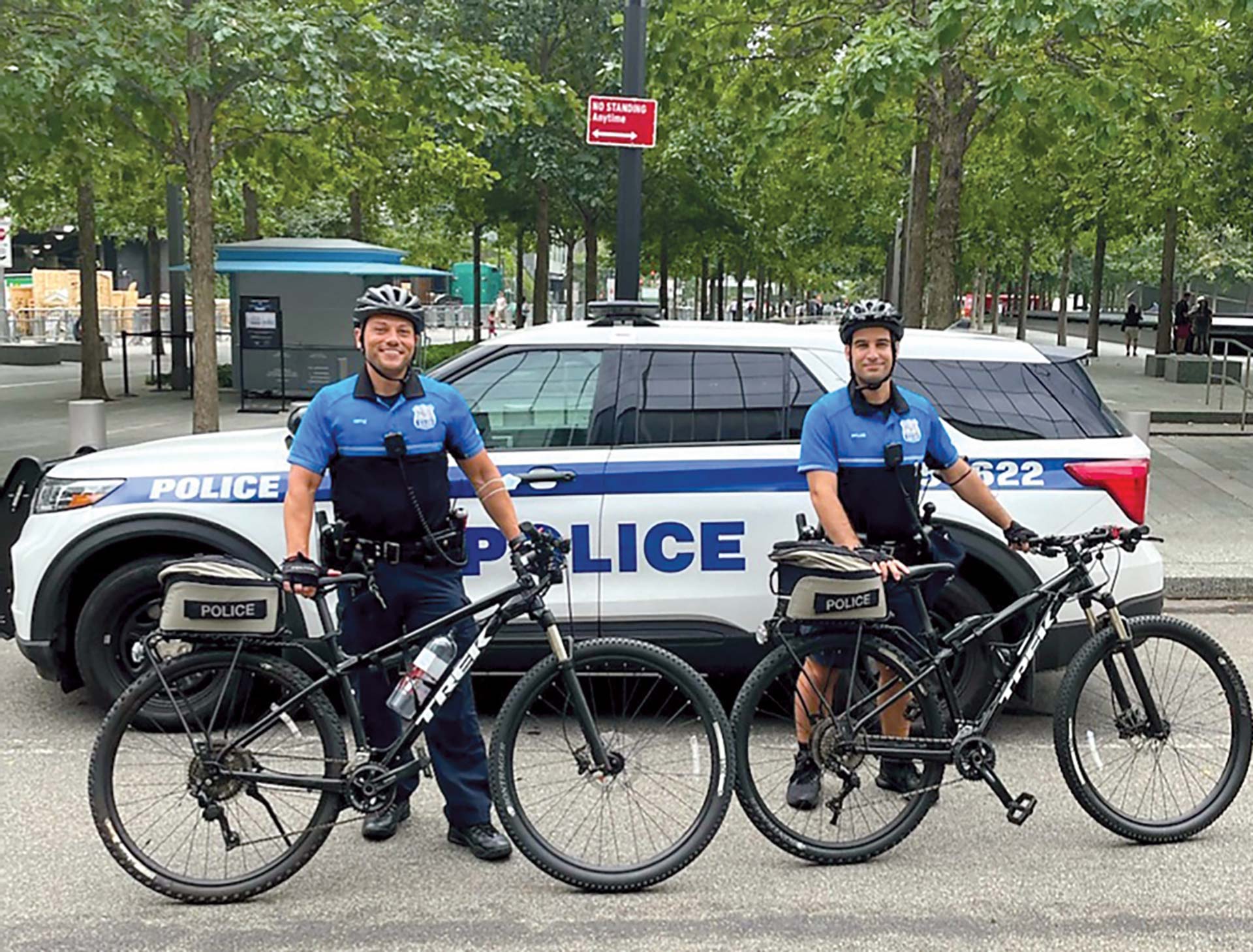
I spent the majority of my first 10 years working foot patrol in the Port Authority Police Department’s Port Authority Bus Terminal Command, known as the BT, in New York City’s Hell’s Kitchen. It is a command where you learn to be a good street cop, but more than that, you learn a lot about yourself. It was the 1980s and ’90s, a time when New York City was threatened by the crack cocaine and AIDS epidemics, daily homicides, crazed homeless people, street violence and total disorder. If you were a BT cop, you had no choice but to learn the job quickly if you planned on surviving.
Occasionally, academy classmates, who were spread out over the department’s 15 other commands, often asked why other cops and I stayed there. That question often gave me cause to ask myself the same question. For me, it simply came down to what I was used to, and that I learned from the most knowledgeable and best cops on the job.
Then came that one morning most cops come to where, upon waking up, I slapped my face and said, “What the hell am I doing?” It took me 10 years to come to that realization. I put my transfer papers in and accepted an assignment in the department’s JFK Airport Command.
I soon found airport policing to be busy, complicated and often difficult. Violent crime did, at times, visit JFK, but it was not the daily onslaught of violence experienced at my previous command. Non-violent crimes, though, were unrelenting. Transportation hubs are magnets for criminals, and with the airport being a city within a city counting daily populations of 150,000 to 200,000, major roadways and highways running through it and hundreds of businesses, it presented the police department with the same issues common in any city of comparable size.
After returning to the Corvette, I had a conversation with the driver. I made vehicle stops on the bike many times, but this one was special.
So, I settled into working a radio car instead of walking a post. I soon learned a radio car operator was a slave to the radio, responding to jobs, taking reports and, of course, getting the commanding officer’s newspaper.
One day, during roll call, the sergeant read a training opportunity for bike patrol. I thought, “Why not? I know I can ride a bicycle and wouldn’t have a problem with the physical assessment.”
I was somewhat concerned about my evaluations, not that I had any discipline problems at the JFK command, but cops who came from the BT command were viewed as difficult to supervise. The truth is, not that the department would admit it, we were expected to practice what I called confrontational policing. Confronting the street thugs was real proactive policing, and it worked. I applied, passed all criteria, and was sent to the academy for training.
I returned and was assigned a bicycle and worked steady bike patrol at the 25-square-mile command concentrating on the terminal area and its nine terminals targeting pickpockets, thieves and hustlers. Bike patrol put a spark back into my waning enthusiasm for the job. Even though radio cars were available to the bike unit, I rode in all weather conditions, including the dead of winter. Cops in cars, as cops in cars do, would pull up next to me and want to talk. I did not want to be rude, but in the winter, I had to remind my colleagues I needed to keep moving to stay warm. Cops still pulled up next to me.
Before working bike patrol, I was part of the command’s plainclothes unit. Criminals always knew when a plainclothes team was working an area. Yet, I learned that on a bike wearing a very visible uniform with the word POLICE appearing all over me, I could ride up on the usual suspects undetected.
There were some embarrassing moments. One day, I was watching the activity as a terminal emptied out. As I approached a sidewalk, with my focus on two known bag thieves, I mistimed my jump to clear the curb and went over the handlebar, landing in front of a group of senior citizen ladies. I immediately got back on my feet, looked at the shocked women, and said, “Don’t worry, ladies, I do that all the time.” I quickly got back on the bike, riding off, feeling the pain.
Embarrassment aside, I was enjoying the freedom on a bike. I rode the bike everywhere, even to court. One spring morning, I was returning from traffic court when the driver of a red Corvette stomped the gas and blew by me. I was approaching a bend in the road that led to an intersection controlled by a traffic light. I put my legs into high gear and thought, “If there’s a God, that guy will be stopped by a red light.”
I rounded the bend, and there it was, the little red Corvette stopped in traffic. I pulled next to the ’Vette and motioned the driver to pull to the side of the road. I took my time checking the driver’s paperwork. He was clear, with no suspensions or wants.
After returning to the Corvette, I had a conversation with the driver. I made vehicle stops on the bike many times, but this one was special. I was, though, in a forgiving mood and handed the driver, who worked for a company at the airport, his paperwork.
I said, “I have your information and know where you work. Take this as a warning, but there is something you’re going to do. You must tell your coworkers, and I will check, that you were speeding in your Corvette and caught by the old cop on a bicycle.”
The driver agreed and made good on the deal. I was a happy bike cop.
As seen in the November 2022 issue of American Police Beat magazine.
Don’t miss out on another issue today! Click below:





